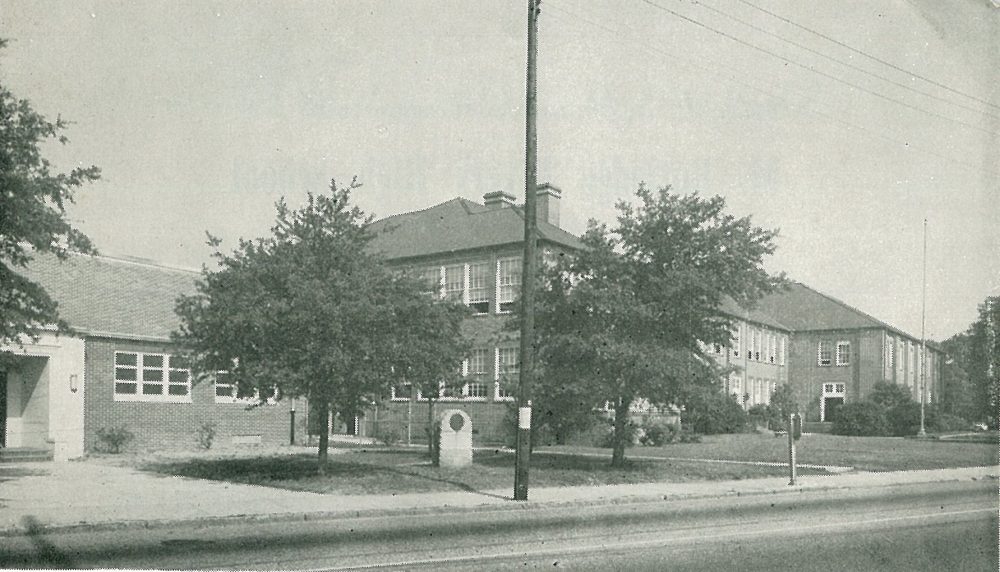
Rivers High School, 1967, in Charleston, South Carolina. From the South Carolina Historical Society collections.
On September 3, 1963, Millicent Brown, a tenth grader, and Jackie Ford, an eighth grader, walked into Rivers High School in Charleston. They were the first black students in South Carolina to attend a formerly all-white school. The effort began in 1959 when a case, Brown et al v. School District 20, was filed under Millicent’s older sister, Minerva’s, name. That case came five years after the better-known Brown v Board of Education of Topeka, Kansas was decided by the U.S. Supreme Court. Despite the earlier ruling, South Carolina’s schools remained segregated, and it would become the second to last state in the nation to finally integrate its public schools. By 1963, Minerva Brown was about to graduate, so Millicent became the “Brown,” in the South Carolina case. The case reached federal judge Robert Martin, and he ruled in favor of Brown et al, calling for eleven black children to be admitted to previously exclusive, all-white schools with better resources.
Millicent’s father, J. Arthur Brown, was president of the NAACP’s Charleston chapter from 1955 to 1960 and of the South Carolina NAACP from 1960 to 1965. Her mother was also an activist and when black leaders such as Thurgood Marshall or Roy Wilkins visited Charleston, they frequently stayed with the Browns. In the summers, the family vacationed at Highlander Folk School in Monteagle, Tennessee. Highlander offered interracial workshops and community training for those advocating black rights. Attendees included Martin Luther King and Septima Clark.
Once at Rivers, Millicent endured glares, silence, and bullying from white students. The ostracism and isolation caused severe anxiety that eventually landed her in the hospital. Still, Millicent stayed at Rivers and graduated with her class in 1966. She earned her bachelor’s degree from the College of Charleston, a master’s in education from The Citadel, and a doctorate in U.S. history from Florida State University. Millicent taught American and Civil Rights history at Guilford College, Bennett College, Hofstra University, North Carolina A&T State University, and Claflin University.
In 2006, Millicent created an online exhibit, Somebody Had to Do It, which is hosted by the Lowcountry Digital History Initiative. In 2024, the University of South Carolina Press published her memoir, Another Sojourner Looking for Truth. At her acceptance speech for the Travelstead Award for Courage in Education, Millicent reminded those in education that they should not tolerate injustice: “We’ve got to stand up in our professional stances and say ‘not in our name. That’s not how we educate. That’s not what we teach our students.’”